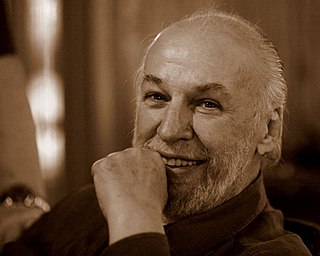A Quote by Jocelyn Bell Burnell
Radio astronomers are aware in the back of their minds that if there are other civilizations out there in space, it might be the radio astronomers who first pick up the signal.
Related Quotes
Radio astronomers study radio waves from space using sensitive antennas and receivers, which give them precise information about what an astronomical object is and where it is in our night sky. And just like the signals that we send and receive here on Earth, we can convert these transmissions into sound using simple analog techniques.
Astronomers who do not draw theistic or deistic conclusions are becoming rare, and even the few dissenters hint that the tide is against them. Geoffrey Burbidge, of the University of California at San Diego, complains that his fellow astronomers are rushing off to join 'the First Church of Christ of the Big Bang.'
Listen- my relationship with radio on a personal level is nothing but a one way love-a-thon... I love radio, I grew up on radio. That's where I heard Buddy Holly, that's where I heard Chuck Berry. I couldn't believe it the first time I heard one of my records on the radio, and I STILL love hearing anything I'm involved with on radio, and some of my best friends were from radio. But we were on different sides of that argument, there's no question about that.
In the 1920s and 30s, when Radio Shack was young, a much earlier generation of nerds swarmed into these tiny shops to talk excitedly about building radios and other transmission devices. You might say that Radio Shack helped define gadget culture for four generations, from radio whizzes up to smartphone dorks.
One might think of investment managers as astronomers and CEOs as astronauts. The two roles are radically different with distinct personality traits. Like astronomers, investment managers tend to be introverted, skeptical, and very analytical. CEOs, like astronauts, are the exact opposite, typically being extroverts, optimists, and, well, leaders.
The cosmic game changed forever in 1992. Before then, logic told us that there had to be other planets besides the nine (if you still count poor Pluto) in our solar system, but until that year, when two astronomers detected faint, telltale radio signals in the constellation Virgo, we had no hard evidence of their existence.
Supposing we knew that up there is some alien civilization and it's sending radio signals our way we should not tell the public where that is. We could say that we've picked up a signal, but we should not tell them where for the simple reason that anybody could commandeer a radio telescope, set themselves up as some self appointed spokesperson of mankind and start beaming all sorts of crazy messages back to the aliens.
The power of a label and radio and a booking agency and all that - you never know until you experience it the first time, but being able to have a song on radio, but then go play a show for people that have heard the song on radio, and having it sung back to you, is - I don't know how to describe it.
In this time, we incorporate money and media, and it's split up like apartheid, where when you say "hip-hop," you think just rap records. People might have forgot about all the other elements in hip-hop. Now we're back out there again, trying to get people back to the fifth element, the knowledge. To know to respect the whole culture, especially to you radio stations that claim to be hip-hop and you're not, because if you was a hip-hop radio station, why do you just play one aspect of hip-hop and rap, which is gangsta rap?





































